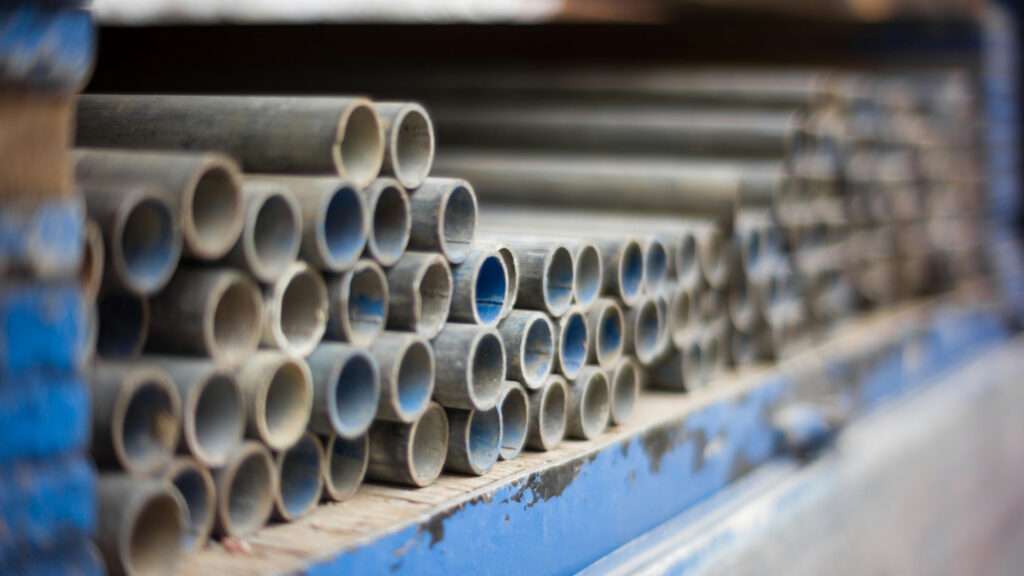Bill Would Address Mexico’s Blatant Violations of 2019 Steel Agreement
WASHINGTON — The Coalition for a Prosperous America (CPA) today applauded U.S. Senators Tom Cotton (R-AR) and Sherrod Brown (D-OH) for introducing the Stop Mexico’s Steel Surge Act, bipartisan, bicameral legislation to reinstate a 25 percent Section 232 steel tariffs on Mexico to address surging imports. Mexico continues to blatantly violate a 2019 joint agreement to lift steel tariffs in return for Mexico avoiding a surge of steel imports, including predatory pricing to drive US producers out of the domestic market. Despite efforts by United States Trade Representative (USTR) Katherine Tai to persuade Mexico to abide by the agreement, the White House has failed to take action.
Senators John Boozman (R-AR), Mike Braun (R-IN), Ted Budd (R-NC), Bob Casey (D-PA), Marco Rubio (R-FL), Rick Scott (R-FL), J.D. Vance (R-OH), and Elizabeth Warren (D-MA) are co-sponsors of the legislation. U.S. Representatives Rick Crawford (R-AR) and Frank Mrvan (D-IN) are introducing companion legislation in the House.
CPA member companies producing steel products have facilities at risk across Ohio, Pennsylvania, Kentucky, Georgia, Florida, Texas, Arizona and Illinois. These plants are often in poor and underserved communities that provide jobs paying wages at more than double the regional average. The continued surge of Mexican steel imports has already had a devastating impact on U.S. manufacturers and workers. The surge in imported Mexican steel conduit led directly to the closure of Zekelman Industries’ Long Beach mill, with the loss of 150 jobs. Wheatland Tube, a steel conduit manufacturer, announced it is closing its Long Beach, California factory and laying off 145 workers. The company cited surging Mexican steel conduit imports as the reason for the plant closure.
“Despite the best efforts of Ambassador Tai and others, it’s time for our lawmakers and the administration to take punitive action and address Mexico’s blatant disregard of the trade agreement,” stated Barry Zekelman, Executive Chairman and CEO, Zekelman Industries. “The damage that’s been done to the industry and our company during the past five years is truly significant, including a factory closure and significant job losses. Additionally, there’s been millions of dollars in lost tax revenue at both the state and national levels that could have been reinvested in our local communities and infrastructure.”
A recent analysis from CPA Chief Economist Jeff Ferry found that steel conduit imports from Mexico continue to surge far above the agreed limits in the 2019. Data on conduit imports across several different tariff codes show that after rising steadily in 2021, 2022, and 2023, Mexican conduit imports in the last two months of 2023, if annualized, were running at some 760% above the historic levels of 2015-2017. At those levels, and with prices deliberately set far below U.S. market prices, the imports threaten hundreds more jobs and hundreds of millions of dollars of U.S. revenue and investment across many states.
“We applaud Senators Cotton and Brown and Representatives Crawford and Mrvan for introducing this important legislation to fix Mexico’s continued blatant violation of the 2019 joint steel agreement,” said Michael Stumo, CEO of CPA. “We applaud Ambassador Tai and her team for working diligently to bring the Obrador administration to the table. However, the White House has refused efforts to actually enforce the existing 2019 agreement and protect American industry and American workers. There is no justification for having these types of agreements if the White House fails to take action when other countries breach them. Congress should immediately pass this bipartisan legislation to address the surge of Mexican steel imports and to protect American steel manufacturers, investment and workers.”
The Stop Mexico’s Steel Surge Act would:
- Reinstate a 25 percent Section 232 tariffs on Mexican steel imports for no less than one year and empowers the president to impose quotas or tariff rate quotas on specific goods where there have been major surges.
- The administration may only lift these tariffs once the Secretary of Commerce and U.S. Trade Representative certify that Mexico has adopted policies bringing it into compliance with the 2019 agreement and are confident that Mexico will maintain these policies.
Last year, CPA applauded USTR Katherine Tai for securing a commitment from Mexico’s Secretary of Economy Raquel Buenrostro to reinstate Mexico’s export monitoring regime. Export monitoring was previously used to ensure compliance with a 2019 joint agreement on steel and aluminum products in which the U.S. agreed to lift steel tariffs in return for Mexico avoiding a surge of steel imports. However, Mexico has continued to blatantly violate that joint agreement, which is why reinstating the export monitoring regime is critical.
Related:
- August 2023: CPA Urges Biden Administration to Address Mexico’s Blatant Violation of Joint Steel Agreement
- February 2023: CPA Applauds Bipartisan Letter Urging Biden Administration To Take Action Against Mexican Steel Surge
- August 2023: Wire Rod And Rebar Imports Surge From Mexico, Violating 2019 Agreement
- January 2023: Duty-Free Steel Imports From Mexico Surge Beyond Agreed Upon Levels
- November 2022: CPA Urges Biden Administration to Resume 25% Tariffs on Mexican Steel Conduits
###













